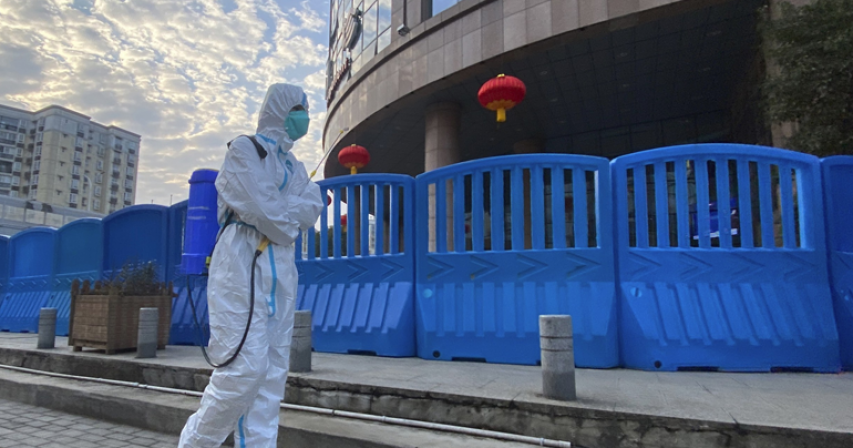A US intelligence report found that several researchers at China's Wuhan Institute of Virology fell ill in November 2019 and had to be hospitalized, a new detail about the severity of their symptoms that could fuel further debate about the origins of the coronavirus pandemic, according to two people briefed on the intelligence.
A State Department fact sheet released by the Trump administration in January said that the researchers had gotten sick in autumn 2019 but did not go as far as to say they had been hospitalized. China reported to the World Health Organization that the first patient with Covid-like symptoms was recorded in Wuhan on December 8, 2019.
The Wall Street Journal first reported on the intelligence surrounding the earlier hospitalizations.
Importantly, the intelligence community still does not know what the researchers were actually sick with, said the people briefed, and continues to have low confidence in its assessments of the virus' precise origins beyond the fact that it came from China. "At the end of the day, there is still nothing definitive," said one of the people who has seen the intelligence.
The director of the Wuhan National Biosafety Lab, which is part of the Wuhan Institute of Virology, issued a strong denial of the report on Monday.
"I've read it, it's a complete lie," director Yuan Zhiming told state-run tabloid Global Times. "Those claims are groundless. The lab has not been aware of this situation, and I don't even know where such information came from."
Director of National Intelligence Avril Haines told lawmakers during the Worldwide Threats Hearing last month that "the intelligence community does not know exactly where, when, or how Covid-19 virus was transmitted initially," an assessment that has not changed, said two of the people briefed on the intelligence.
The current intelligence reinforces the belief that the virus most likely originated naturally, from animal-human contact, the sources said. But that does not preclude the possibility that the virus was the result of an accidental leak from the Wuhan Institute, where coronavirus research was being conducted on bats.
The World Health Organization conducted an investigation into the origins of the pandemic and concluded in a report that the risk of an accident was "extremely low." The report said there was "no reporting of Covid-19 compatible respiratory illness during the weeks/months prior to December 2019, and no serological evidence of infection in workers through SARS-CoV-2-specific serology-screening."

Comments